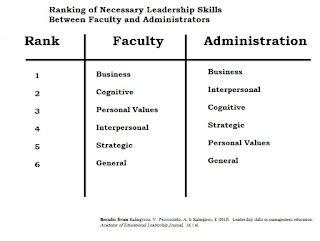Purpose/Significance
Dr Andree
Swanson and Dr Maria Minor, research partners, are conducting a qualitative
study to identify the views of online faculty on whether using an introductory
video will be of assistance to increase social engagement. Faculty want to ensure that students have a
sense of connection and engagement (e-connectivity) with the faculty. Increased e-connectivity will improve
retention, reduce attrition, and help to keep the student engaged in the
classroom (Swanson, Hutkin, Babb, &
Howell, 2010, p. 121). The study will seek the opinions of online
faculty using social media such as Linkedin, Blogs, Facebook, and Twitter.
Significance Statement
The significance
of this study is that faculty want to ensure that students are engaged in the
online classroom. Studies have been
completed that identified the need for:
1)
Achieving a social connection
(e-connectivity) with their students (Muirhead, 2000; Slagter van Tryon &
Bishop, 2006)
2)
Increasing interactivity that “will
help the students' with their understanding” (Swanson, Hutkin, Babb, &
Howell, 2010, p. 121).
Swanson et al. (2010) stated,
Participants in a study agreed that faculty should be warm,
available to answer questions; hold students to a high standard, remain
flexible to adult learners; honest in all of their interactions, and
demonstrate a caring nature in the online classroom. (p. 119)
Slagter
van Tryon and Bishop (2006) as cited in Swanson et al. (2010) defined the
unique term e-immediacy as the feeling of social connectivity between two
online individuals whether instructors or classmates). Engagement and the feelings of social
connectedness are what the students’ desire (Slagter van Tryon & Bishop,
2006; Swanson et al., 2010). Student
engagement can be increased by including, at a minimum, instructor welcome
videos in the online classroom. The
addition of introductory videos will enable the faculty members to engage in
the proposed study to share their personality and enthusiasm for the
topic.
Benefits
This is an
introductory research project. The benefits of this study may result in data
that participants can use. If the
results show a positive outcome, participants make look into adding a welcoming
video into their own classroom. The
benefits are to the online learning community may result in increased retention
in online classroom and may result in reduced attrition. The results from this survey may present
significant data to conduct further research on the addition of video in the
classroom which may benefit higher education and learning in society.
Participate in Study
You
are invited to participate in a 12-question research study Using an Introductory. Please go to this link, complete the informed
consent, and take the brief survey.
Please go to http://www.minorswanson.info/#!current-research/ch6q then click on
the link at the bottom of the page.
Dr. Andree Swanson and Dr Maria Minor
References
Slagter
van Tryon, P. J., & Bishop, M. J. (2006). Identifying “e-mmediacy”
strategies for web-based instruction: A Delphi study. Quarterly Review of Distance Education, 7(1), 49-63. Retrieved July
11, 2009, from ProQuest database.
Swanson, A., Hutkin, R.,
Babb, D., & Howell, S. (2010, Sep). Establishing
the best practices for social interaction and e-connectivity in online higher
education classes. Doctoral dissertation, University of Phoenix, Arizona.
Publication Number: 3525517. Retrieved from http://gradworks.umi.com/3525517.pdf
